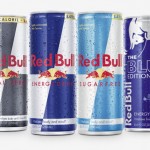Caffeine Source Reference
To find the source for an individual item:
- Find the item on the Caffeine Database.
- Click the item to go to the caffeine content page.
- Scroll to the bottom for specific sources for this item.
For Popular Drinks
How we source caffeine amounts for most popular drinks.
- First we look at the nutrition label (if available).
- Then we thoroughly check the brand website.
- Failing that, we contact the drink manufacturer directly, and keep requesting until they disclose the caffeine amounts.
For Everything else
We consult a large range of journal articles and resources. (including, but not exhaustive):
- USDA Nutrition Database SR26 (link)
- Bunker and McWilliams; J. Am. Diet. 74:28-32, 1979
- Caffeine Content of Specialty Coffees, Journal of Analytical Toxicology, October 2003, vol. 27, no. 7, pp. 520-522. McCusker R.R.; Goldberger B.A.; Cone E.J.( summary here).
- The old caffeine FAQ – rather dated now (link). Much of the information presented there came from the Bunker and McWilliams (1979) paper.
-
Food and Chemical Toxicology, Volume 34, Issue 1 , January 1996, Pages 119-129 J. J. Barone and H. R. Roberts
(link) - Journal of Analytical Toxicology, Volume 30, Number 2, March 2006, pp. 112-114, McCusker, Rachel R.; Goldberger, Bruce A.; Cone, Edward J. (link) See also PDF.
- Supplements containing caffeine (USDA). (link)
- Caffeine Content of Decaffeinated Coffee. Journal of Analytical Toxicology, October 2006, vol. 30, no. 7, pp. 611-613. McCusker R.R.; Goldberger B.A.; Cone E.J. The University of Florida has undertaken lab testing of popular decaf coffees (see here).
- Consumer Reports – Analyzed caffeine in a number of items (link).
- Actions of Caffeine in the Brain with Special Reference to Factors That Contribute to Its Widespread Use. Pharmacological Reviews, Vol. 51, Issue 1, 83-133, March 1999 Bertil B. Fredholm1, Karl Bättig, Janet Holmén, Astrid Nehlig and Edwin E. Zvartau – Fascinating research into the use of caffeine (link).
- An exhaustive review of individual response to caffeine. This research (undertaken by Australia and NZ government) looks at dozens of studies and attempts to measure reaction to caffeine based on quantity (link)
- Caffeine Content of Prepackaged National-Brand and Private-Label Carbonated Beverages. Journal of Food Science; K.-H. Chou and L.N. Bell. A large test of many popular soft drinks. link
- Distribution of Catechins, Theaflavins, Caffeine, and Theobromine in 77 Teas Consumed in the United States Journal of Food Science, Volume 70, Issue 9, November 2005, Pages: 550-559





